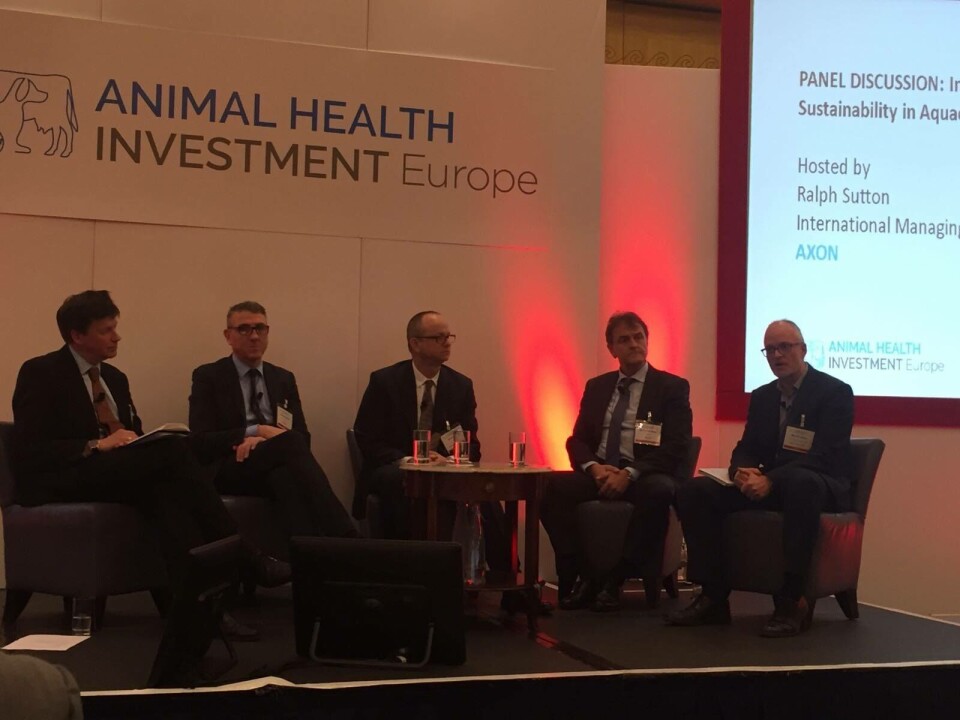
Collaboration is key
A selection of eminent aquaculture figures backed the importance of collaboration across the sector to solve key challenges, during the Animal Health Investment Europe forum, which was held in London last week.
The aquaculture panel, who discussed Innovation and Sustainability in Aquaculture, consisted of Steven Rafferty, Managing Director of Skretting; Morten Nordstad, CEO of Pharmaq; Oyvind Oaland, Global Director for R&D at Marine Harvest; and Malcolm Pye, CEO of Benchmark – all of whom advocated working together to find solutions to sustainability challenges.
At the forum, which was attended by around 350 delegates, Skretting endorsed the view that sustainable aquaculture growth will be one of the main solutions to feeding a fast growing global population that is forecast to reach 9 billion people by 2050. This population growth, according to the FAO, requires current global food production to increase by 70%.
Steven Rafferty emphasised the critical need for increased innovation that supports aquatic and terrestrial animal health and biosecurity.
“No matter what we do as an industry to alleviate environmental pressures such as raw material exploitation, land and water use, energy, waste and our carbon dioxide footprint etc., farming – whether on land or in the sea – cannot be considered sustainable if the animals themselves are suffering from disease challenges or have other welfare issues. A healthy animal is a productive animal, and to feed the 9 billion in 2050 we need healthy animals and a healthy industry,” said Rafferty.
He continued: “Proactive approaches are always far more effective than responsive cures, both with regard to animal health and farm economics. Therefore, innovation should focus on preventative solutions. For both aquaculture and livestock production there is much more for us to learn and develop within selective breeding for more robust animals, development of efficient vaccines and also functional, targeted feeds. However, what is clear is that these solutions must be applied in a holistic approach, as none of them are going to solve specific health challenges alone.”
Cooperation
To illustrate how cooperation between farmers and other organisations in the aquaculture value chain can accelerate the development of sustainable solutions, Rafferty explained the collaborative effort to reduce antibiotic use in the Chilean salmon farming industry.
Last year, global and local companies operating in Chile, led by Skretting, AquaGen/Blue Genomics, Pharmaq, Centrovet, Cermaq, Blumar and Ventisqueros launched the groundbreaking Pincoy Project, which aims to address the antibiotics issue through greater industry joint efforts while also delivering measurable sustainable growth. This carefully structured programme comprises selective breeding, high-quality hatchery diets, careful smolt selection, vaccines, functional feed-based diets, best practice protocols at both the freshwater and seawater stages of growth, and close monitoring and reporting throughout.
“Pincoy is a prime example of an important aquaculture sector taking a holistic approach and applying all of the most efficient tools available to it in a coordinated way to overcome a major sustainability obstacle. The progress now being made in Chile would not be possible without the willingness of those companies and institutions to share their expertise, aligned with their desire to see best-practice applied across an entire industry,” said Rafferty.




















































